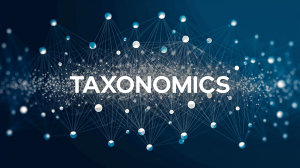Taxonomics: The Recursive Framework of Systemic Classification
About this ebook
Rooted in its etymology—"Taxis" (Greek: arrangement, order) and "-nomics" (Greek: system, law)—Taxonomics extends beyond traditional taxonomy, establishing a universal, hierarchical model for organizing systemic structures. This novel framework integrates linguistic, mathematical, and atomic principles, serving as the governing architecture for recursive, hierarchical knowledge networks.
Core Principles of Taxonomics
Systemic Classification → Organizing knowledge through recursive, rule-governed structures
Hierarchical Organization → Establishing interdependent levels of structured intelligence
Recursive Framework → Enabling adaptive, self-referential categorization models
Universal Integration → Connecting linguistic, scientific, and mathematical taxonomies into a unified system
Key Applications of Taxonomics
Linguistic Categorization → Standardizing meaning across evolving knowledge networks
Mathematical Structuring → Establishing formal relationships between complex data sets
Atomic and Quantum Classification → Defining fundamental structures of matter and energy
AI-Driven Knowledge Modeling → Implementing recursive learning for automated classification systems
By combining structured reasoning, hierarchical organization, and recursive optimization, Taxonomics provides a universal framework for the systematic classification of all forms of knowledge, ensuring scalability, adaptability, and logical coherence. This groundbreaking model is essential for scientific research, artificial intelligence, data structuring, and interdisciplinary knowledge synthesis, offering a revolutionary pathway toward structured intelligence and universal epistemological organization.
About the author
Ronald Legarski is a visionary systems theorist, interdisciplinary researcher, and architect of recursive classification frameworks, specializing in taxonomic structuring, knowledge standardization, and hierarchical intelligence modeling. As the Founder of SolveForce and Co-Founder of Adaptive Energy Systems, Legarski has played a pivotal role in developing scalable, rule-governed models that unify systemic knowledge structuring, recursive automation, and AI-driven classification systems.
As the creator of Taxonomics, Legarski introduces a revolutionary recursive classification framework where systemic organization, hierarchical relationships, and structured intelligence converge into a singular, scalable knowledge network. His research explores AI-assisted taxonomy development, blockchain-backed classification standardization, and quantum-assisted hierarchical modeling, ensuring universal knowledge integration and structured optimization.
With expertise spanning computational linguistics, artificial intelligence, quantum mechanics, and epistemological structuring, Legarski’s work redefines taxonomic methodologies through recursive systematization and hierarchical knowledge mapping. His leadership in Adaptive Energy Systems applies Taxonomics principles to AI-powered knowledge verification, interdisciplinary data classification, and self-regulating hierarchical models, while SolveForce continues to advance telecommunications, decentralized classification systems, and AI-driven taxonomic intelligence frameworks.
Through his research, writing, and technological innovations, Ronald Legarski pioneers a recursive, interdisciplinary approach to systemic classification, ensuring universal knowledge standardization, taxonomic coherence, and scalable hierarchical modeling. His vision for Taxonomics establishes the foundation for the next stage of artificial intelligence, recursive learning models, and structured information processing, creating a universal, adaptable classification system where all knowledge is systematically organized, categorized, and optimized for interdisciplinary comprehension.







